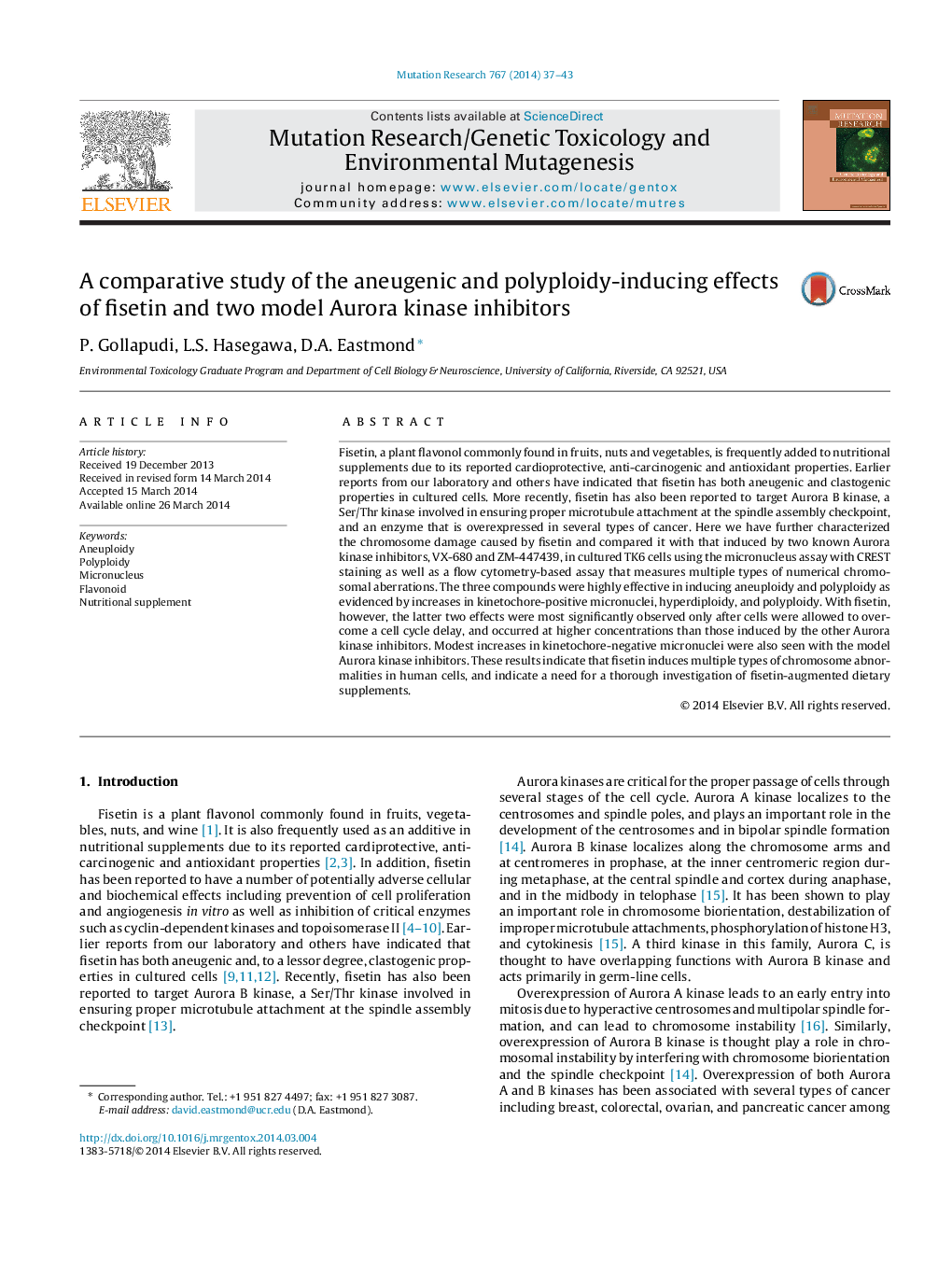| Article ID | Journal | Published Year | Pages | File Type |
|---|---|---|---|---|
| 2147953 | Mutation Research/Genetic Toxicology and Environmental Mutagenesis | 2014 | 7 Pages |
•Fisetin, a plant flavonol that is added at high levels to some nutritional supplements, has recently been reported to inhibit Aurora B kinase.•Chromosomal alterations induced by fisetin were characterized and compared to those induced by two model Aurora kinase inhibitors.•All three agents were highly effective in inducing aneuploidy and polyploidy in cells in culture.•Only fisetin induced a significant cell cycle delay suggesting that it has cellular targets in addition to Aurora B kinase.
Fisetin, a plant flavonol commonly found in fruits, nuts and vegetables, is frequently added to nutritional supplements due to its reported cardioprotective, anti-carcinogenic and antioxidant properties. Earlier reports from our laboratory and others have indicated that fisetin has both aneugenic and clastogenic properties in cultured cells. More recently, fisetin has also been reported to target Aurora B kinase, a Ser/Thr kinase involved in ensuring proper microtubule attachment at the spindle assembly checkpoint, and an enzyme that is overexpressed in several types of cancer. Here we have further characterized the chromosome damage caused by fisetin and compared it with that induced by two known Aurora kinase inhibitors, VX-680 and ZM-447439, in cultured TK6 cells using the micronucleus assay with CREST staining as well as a flow cytometry-based assay that measures multiple types of numerical chromosomal aberrations. The three compounds were highly effective in inducing aneuploidy and polyploidy as evidenced by increases in kinetochore-positive micronuclei, hyperdiploidy, and polyploidy. With fisetin, however, the latter two effects were most significantly observed only after cells were allowed to overcome a cell cycle delay, and occurred at higher concentrations than those induced by the other Aurora kinase inhibitors. Modest increases in kinetochore-negative micronuclei were also seen with the model Aurora kinase inhibitors. These results indicate that fisetin induces multiple types of chromosome abnormalities in human cells, and indicate a need for a thorough investigation of fisetin-augmented dietary supplements.
